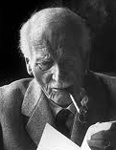 In Modern Man in Search of a Soul, C.G. Jung explains how therapists can use dreams to help a patient heal:
In Modern Man in Search of a Soul, C.G. Jung explains how therapists can use dreams to help a patient heal:
Nothing is unclear to the understanding; it is only when we fail to understand that things appear unintelligible and confused. In themselves, dreams are clear—that is, they are just as they must be under the given conditions. If we look back at these “unintelligible” dreams from a later stage of the treatment or from a distance of some years, we are often astounded at our own blindness. It is a fact that, as an analysis progresses, we come upon dreams that are strikingly obscure in comparison with the initial dreams. But the doctor should not be too sure that these later dreams are really confused, or be too hasty in accusing the patient of deliberate resistance. He would do better to take the fact as an indication of his own growing inability to understand the situation.
The psychiatrist likewise is prone to call a patient “confused” when he would do well to recognize the projection and admit his own confusion, for it is really his understanding that grows confused in face of the patient’s strange behaviour. For the purposes of therapy, moreover, it is highly important for the analyst to admit his lack of understanding from time to time, for nothing is more unbearable for the patient than to be always understood. The latter in any case relies too much upon the mysterious insight of the doctor, and, by appealing to his professional vanity, lays a dangerous trap for him. By taking refuge in the doctor’s self-confidence and “profound” understanding, the patient loses all sense of reality, falls into a stubborn transference, and retards the cure.
Understanding is clearly a subjective process. It may be very one-sided, in that the physician understands while the patient does not. In such a case the doctor sometimes feels it his duty to convince the patient, and if the latter will not allow himself to be convinced, the doctor accuses him of resistance. When the understanding is all on my side, I find it advisable to stress my lack of understanding. It is relatively unimportant whether the doctor understands or not, but everything hangs on the patient’s doing so.
What is really needed is a mutual agreement which is the fruit of joint reflection. It is one-sided, and therefore dangerous, understanding for the doctor to prejudge the dream from the standpoint of a certain doctrine and to make a pronouncement which may be theoretically sound, but does not win the patient’s assent. In so far as the pronouncement fails in this respect, it is incorrect in the practical sense; and it may also be incorrect in the sense that it anticipates and thereby cripples the actual development of the patient. We appeal only to the patient’s brain if we try to inculcate a truth; but if we help him to grow up to this truth in the course of his own development, we have reached his heart, and this appeal goes deeper and acts with greater force.
Excerpt from the Carl Jung ebook, Modern Man in Search of a Soul